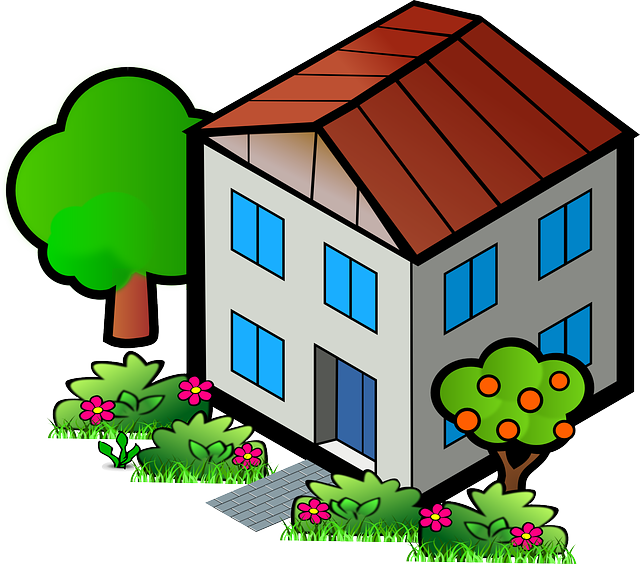Choosing eco-conscious materials like recycled wood and bamboo for home renovations significantly reduces environmental impact. Sustainable features like solar panels and water-saving fixtures enhance green homes, leading to utility bill savings and a healthier living space. Eco-friendly upgrades, as demonstrated in a suburban renovation, boost property value while promoting sustainability, making them smart long-term investments. These energy-efficient home projects contribute to a more environmentally conscious future.
Looking to transform your home while reducing your environmental footprint? This guide offers expert tips on eco-friendly renovations that enhance comfort and save money. From selecting sustainable building materials with low environmental impact to implementing energy-efficient projects and adopting water-saving fixtures, we explore green renovation ideas for every room. Discover case studies of successful eco-conscious builds and learn about renewable energy solutions like solar panels. Embrace a brighter future with these sustainable home improvements.
Choosing Eco-Conscious Building Materials
When embarking on green home improvements, selecting sustainable building materials is a powerful way to reduce your project’s environmental impact. Opting for eco-conscious options like recycled or reclaimed wood, bamboo, and natural fibers not only minimizes waste but also contributes to a healthier living space. These materials often have lower embodied energy, meaning they require less energy for production, making them a superior choice for energy-efficient home projects.
Furthermore, incorporating renewable energy solutions such as solar panels or wind turbines can significantly enhance the eco-friendliness of your renovation ideas. Water-saving home fixtures are another crucial element in environmentally friendly remodeling. Simple changes like installing low-flow showerheads and toilets can lead to substantial water conservation over time. These green renovation ideas not only benefit the planet but often result in long-term savings for homeowners, as energy-efficient home projects can lower utility bills.
– Selecting materials with low environmental impact
When embarking on green home improvements, selecting materials with a low environmental impact is a crucial step. Opt for eco-conscious building materials like recycled or reclaimed wood, bamboo, and natural fibers. These options not only reduce your carbon footprint but also contribute to a healthier living environment, free from harmful chemicals often found in traditional building supplies.
Consider sustainable home improvements such as water-saving home fixtures and energy-efficient appliances. Integrating renewable energy solutions like solar panels or wind turbines can significantly lower utility bills while promoting a greener lifestyle. Additionally, exploring green renovation ideas focused on proper insulation, efficient lighting systems, and natural ventilation can enhance your home’s energy efficiency, making it an environmentally friendly haven without compromising comfort.
– Benefits of using recycled and sustainable materials
Using recycled and sustainable materials for your green home improvements offers a multitude of benefits that extend beyond environmental conservation. Eco-conscious building materials reduce your carbon footprint by cutting down on resource extraction, manufacturing processes, and waste generation associated with conventional products. Incorporating these materials into your renovation ideas not only minimizes the ecological impact but also contributes to a healthier living environment for your family. Many sustainable options are now available that mimic the aesthetics of traditional materials while providing superior energy-efficiency, making them an attractive choice for green renovation projects.
One of the key advantages is the potential for significant cost savings over time through reduced energy consumption. For instance, renewable energy solutions like solar panels and energy-efficient home projects can lower utility bills. Water-saving home fixtures are another excellent example, as they help conserve this precious resource without compromising on performance. Such eco-friendly home upgrades not only promote sustainability but also serve as a wise long-term investment that could pay off through reduced maintenance costs and enhanced property value, aligning with the broader trend of environmentally friendly remodeling.
– Case studies: Successful eco-friendly building projects
Many successful case studies prove that eco-friendly home upgrades are both aesthetically pleasing and beneficial for the environment. For instance, a recent green renovation project in a suburban neighborhood showcased the potential of sustainable home improvements. The builders replaced traditional building materials with eco-conscious alternatives, such as bamboo flooring and recycled insulation. They also implemented renewable energy solutions, like solar panels and a wind turbine, significantly reducing the property’s carbon footprint.
The transformation didn’t stop there; water-saving home fixtures were installed, including low-flow toilets and smart showerheads, further contributing to conservation efforts. These changes not only made the house more energy-efficient but also increased its value in the market as a desirable, environmentally friendly home. This project serves as an inspiration for others considering green renovation ideas, demonstrating that eco-conscious building materials and efficient systems can create beautiful, functional spaces while promoting sustainability.
Upgrading your home with a focus on sustainability is not only beneficial for the environment but also offers long-term savings and improved living conditions. By choosing eco-conscious building materials, incorporating renewable energy solutions, and selecting water-saving home fixtures, you can contribute to a greener planet while enhancing the value and efficiency of your property. These green renovation ideas, backed by successful case studies, prove that environmentally friendly remodeling is accessible, practical, and aesthetically pleasing. Embrace these sustainable home improvements to create a comfortable living space that harmonizes with nature.
